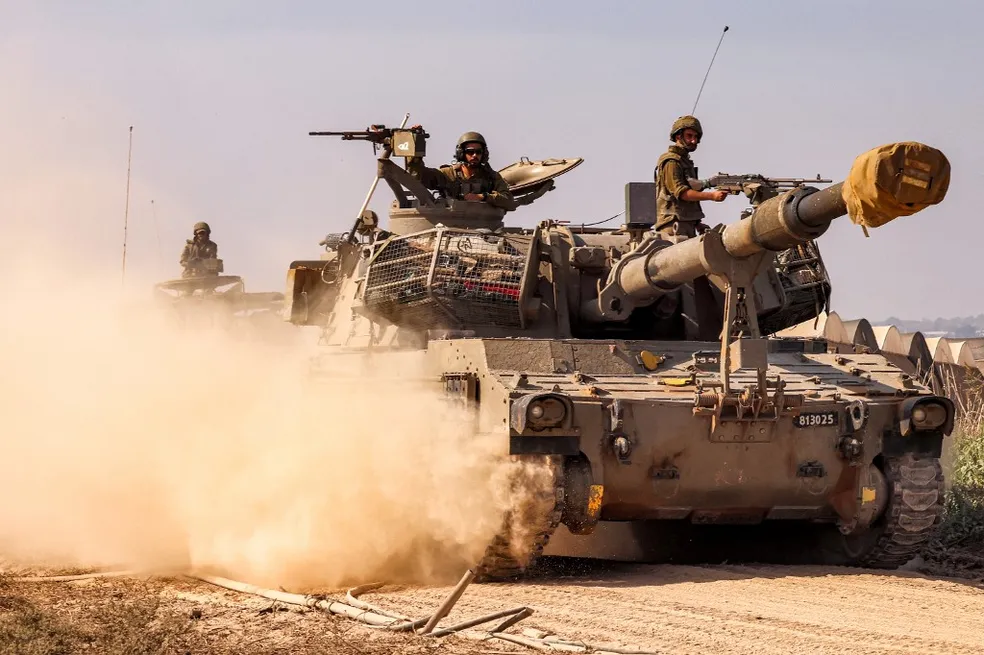
The mediators (Qatar, Egypt and the United States) met with the delegation of the Islamist movement to hear the response to the latest ceasefire proposal, presented at the end of April.
This offer includes a 40-day ceasefire and the exchange of Israeli hostages held in Gaza since October 7 for Palestinians held in Israel.
A Hamas leader reiterated this Saturday night that the Palestinian Islamist movement will “in no way” accept an agreement that does not explicitly include an end to the war.
Previously, he had indicated that the negotiations had not allowed “any development” so far. “Today’s negotiations are over and there will be a new round tomorrow,” he added.
An Israeli official had already referred to Hamas’ position shortly before, considering it an obstacle to any agreement.
“So far, Hamas has not abandoned its demand to end the war, thus obstructing the possibility of reaching an agreement,” a senior Israeli official told AFP on condition of anonymity.
The official also denied reports that Israel had agreed to end the war in exchange for the release of hostages held by Hamas.
Israeli bombings continued in Gaza, especially in Rafah, a city at the southern tip of the Strip, where around 1.5 million Palestinians, most of them displaced by the fighting, are crowded together.
At least 32 people have died in Gaza in the last 24 hours, according to the territory’s Ministry of Health, governed by Hamas since 2007.
Threat of attack on Rafah
According to the Axios portal, the head of the CIA, William Burns, is currently in the Egyptian capital.
The Islamist movement had stated on Friday that its representatives were returning to Cairo with a “positive spirit” and “determined to achieve (…) a complete ceasefire of aggression, the withdrawal of the occupying forces” and “a serious exchange agreement”.
Israel, like the United States and the European Union, considers Hamas a terrorist organization, opposes the definitive ceasefire and insists on launching a ground offensive against Rafah, considering it the last bastion of Islamist commandos.
“We will do whatever is necessary to win and defeat our enemy, also in Rafah,” Israeli Prime Minister Benjamin Netanyahu reiterated this week.
The Hamas leader who reiterated the demand for a permanent ceasefire said that Netanyahu “hinders” negotiation efforts due to “personal interests.”
Israel’s “obstinacy” could “compromise the negotiations and Netanyahu will be responsible”, he added, warning that a ground offensive against Rafah “will not be a walk in the park and the occupier will pay a high price”.
The United States, the Israeli government’s main ally, opposes an invasion of Rafah, especially if Israel does not present a plan to protect civilians.
The World Health Organization (WHO) warned that such an offensive could result in “a bloodbath.”
According to The Wall Street Journal, which cites Egyptian sources, Israel will give negotiations a week before launching the offensive it has been preparing for weeks against Rafah.
Netanyahu also faces strong domestic pressure
Thousands of Israelis demonstrated again this Saturday in Tel Aviv demanding an agreement that would allow the hostages to be released.
One banner showed a portrait of Netanyahu with a caption that read: “you are the one boycotting any agreement.”
‘A real hunger’
A ground operation in Rafah could also compromise the humanitarian aid that enters the Strip, most of it through this city on the border with Egypt, and which is already insufficient to meet the needs of Gaza’s 2.4 million inhabitants.
Some countries have parachuted aid in and the United States is building an artificial port off the coast of Gaza to deliver supplies by sea.
“Hunger is there, a real hunger in the north and moving south,” warned the director of the World Food Program (WFP), Cindy McCain, in an excerpt from an interview that the American network NBC will broadcast in full on Sunday.
The war broke out on October 7, following an attack by Hamas commandos that killed 1,170 people, most of them civilians, and kidnapped around 250 in southern Israel, according to an AFP report based on Israeli data.
Israeli authorities estimate that following a hostage exchange for Palestinian prisoners in November, 129 people remain captives in Gaza and that 35 have since died.
The offensive launched by Israel in response to the attack has so far left 34,654 people dead in Gaza, most of them civilians, according to the Hamas government’s Ministry of Health.
